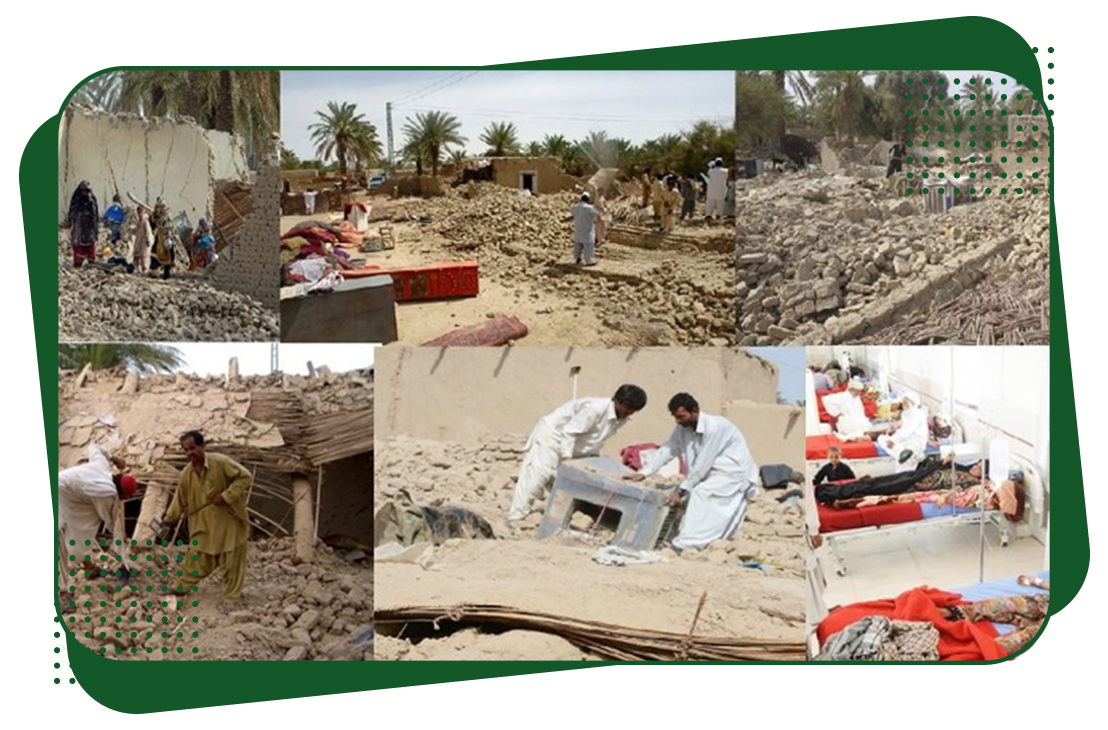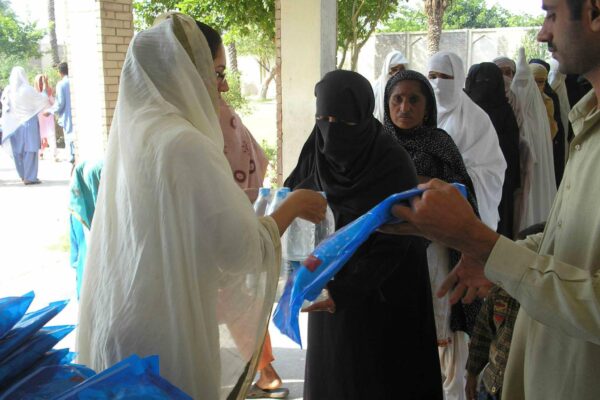Mashkel, a tehsil in the Washuk district of Balochistan, Pakistan, lies 467 km southwest of Quetta and is closer to Iran (20 km away) than to the provincial capital. On 16 April 2013, a devastating 7.8 magnitude earthquake struck near Khash, Iran, with its epicenter just 83 km east of Khash. Mashkel, being within 100 km of the epicenter, bore the brunt of the disaster.
Supported by UK Medical Aid to Pakistan and Infaq Foundation, Karachi
Impact of the Earthquake
Affected Lives:
Nearly 45,000 people were affected in Mashkel, out of a total population of 48,000.
Over 20,000 people were still awaiting relief efforts in the aftermath.
Buildings Damaged:
85% of the city’s buildings were demolished, primarily mud houses (adobe structures).
Over 3,200 homes were either damaged or rendered uninhabitable, forcing families to sleep in the open or in makeshift shelters.
Infrastructure and Communication:
The earthquake severely damaged communication systems and disrupted electricity supply from Iran.
The lack of paved roads, electricity, mobile coverage, and medical facilities further hampered rescue and relief efforts.
IDSP’s Relief Initiative
With the support of UK Medical Aid to Pakistan and Infaq Foundation, Karachi, the Institute for Development Studies and Practices (IDSP) launched a relief initiative to address the urgent needs of the affected communities.
Key Steps Taken
1. Needs Assessment:
- IDSP consulted with Mr. Sharif Shambezai, a senior fellow from Turbat, and appointed Mr. Ali, a local representative from Mashkel, as the focal person for identifying needs and distributing aid.
- A meeting was held with Mashkel community representatives to discuss the situation and prioritize needs.
2. Identified Needs:
- Shelter: Tents for families whose homes were destroyed.
- Food: Grocery items for families facing food shortages.
- Clean Water: Water purification tablets and ORS (Oral Rehydration Salts) for diarrhea patients.
- Mosquito Nets: To protect against insect-borne diseases.
3. Procurement and Distribution:
- Infaq Foundation contributed Rs. 250,000, while UK Medical Aid to Pakistan donated £440,392.40 to fund the relief efforts.
- The following items were purchased and distributed:
- 72 Tents (accommodating 10-12 family members each).
- 72 Food Packages (sufficient for 2 weeks).
- 72 Mosquito Nets.
- Water Purification Tablets and ORS for 100 families.
- Transportation Costs for delivering relief items from Quetta to Mashkel.
Why Tents and Food Were Prioritized Over Medicines
- Shelter: Most affected families had lost their homes and were living in the open. Tents provided immediate shelter and protection.
- Food: Many families were starving due to a lack of income and resources. Food packages addressed this urgent need.
- Medicines: While medical aid had already been provided by the government and other agencies, there was a lack of knowledge on how to use the medicines effectively.
Impact of the Relief Efforts
- 72 Families received tents and mosquito nets, providing them with shelter and protection.
- 72 Families were provided with food packages, alleviating hunger for two weeks.
- 100 Families received water purification tablets and ORS, ensuring access to clean water and addressing health concerns.
How You Can Help
The relief efforts led by IDSP, with the support of UK Medical Aid to Pakistan and Infaq Foundation, Karachi, provided critical assistance to the earthquake-affected communities in Mashkel. By addressing immediate needs such as shelter, food, and clean water, the initiative brought hope and relief to thousands of people in one of Pakistan’s most remote and underserved regions.
UKMAP – Delivering Hope and Relief in Times of Crisis.


